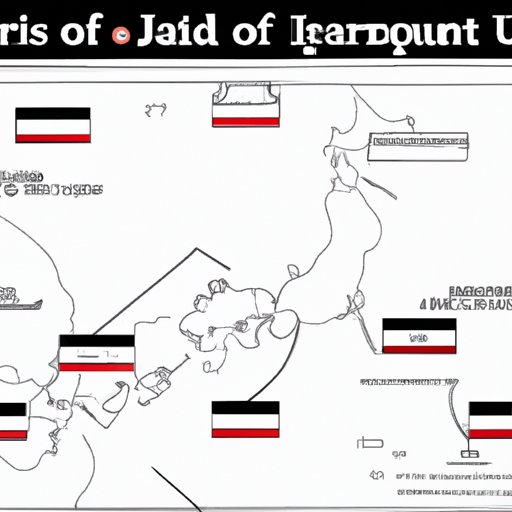Introduction
The surrender of Japan in 1945 marked the end of World War II. The event is considered one of the most significant in modern history. Understanding the reasons that led to Japan’s surrender is crucial to gaining insights into the war’s outcome and shaping geopolitical relationships in the post-war world.
Historical Overview
The events that led to Japan’s surrender were marked by several critical moments, including the dropping of atomic bombs on Hiroshima and Nagasaki in August 1945. Furthermore, the Soviet Union’s entry into the war had a significant impact on Japan’s defeat. Key leaders involved in the decision-making process included Emperor Hirohito and Prime Minister Kantaro Suzuki.
Military Strategy
Japan’s military strategy in the final months of the war was characterized by a decision to fight to the death rather than surrender. The impact of Allied bombing campaigns made this strategy increasingly difficult to sustain. Japan’s wartime tactics were further challenged by the entry of the Soviet Union, which led to a grueling battle in Manchuria.
Diplomatic Pressure
The United States and other Allied powers exerted significant diplomatic pressure on Japan to surrender. Negotiations between Japan and the United States began earlier in 1945. The Soviet Union’s entry into the war signaled that prolonging the conflict was futile, and on August 15, Japan ultimately agreed to the terms of surrender.
Economic Factors
Japan faced significant economic pressures in the final years of World War II. Shortages of food, fuel, and other essential resources made it increasingly challenging to continue the conflict. The Allied blockade of Japan further exacerbated these conditions, making them an important factor in Japan’s decision to surrender.
Public Opinion
Public opinion played a crucial role in Japan’s decision to surrender. The increasing number of military defeats and civilian casualties led to a growing sentiment that the war was unsustainable. Furthermore, Japan’s cultural taboo against surrender made public opinion a critical factor in convincing leaders to seek peace.
Psychological Factors
Japanese culture viewed surrender as a shameful act, making it difficult for leaders to consider this option. The impact of the atomic bombings proved to be a decisive psychological factor, leading to a realization that Japan’s military might was no match for the Allies’ technological firepower.
Alternative Scenarios
If Japan had not surrendered, it is possible that the United States may have carried out a ground invasion, leading to prolonged warfare and significant loss of life. This scenario would have had significant geopolitical repercussions and could have led to a vastly different post-war world.
Conclusion
Several factors influenced Japan’s decision to surrender, from diplomatic pressure and military strategy to economic and psychological factors. Understanding these events and their impact is crucial to gaining insights into the complexities of one of the most significant events of the 20th century.
